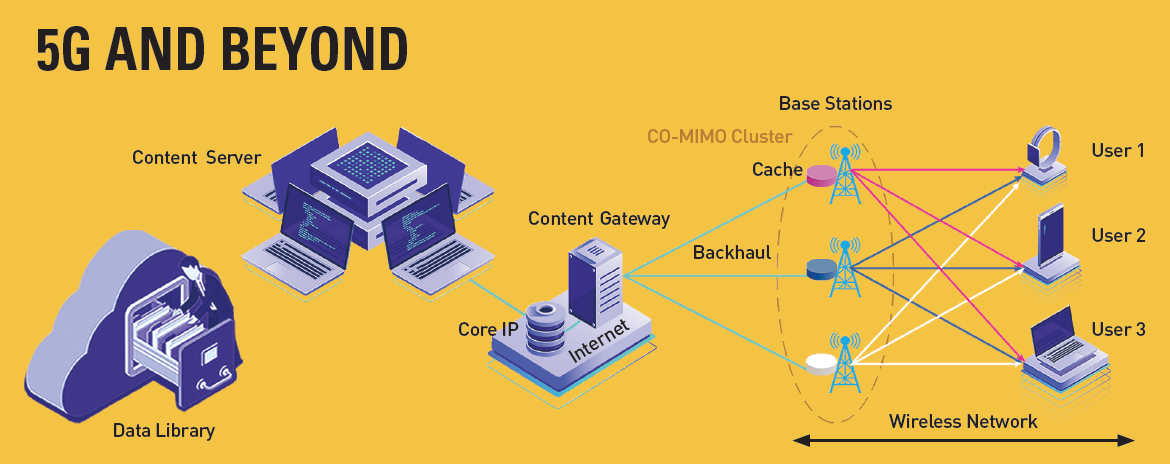Applications-aware Networking for 6G Mobile Systems

When it comes to the quest for faster, smoother and safer mobile connectivity, the sky’s the limit. In fact, the arrival of fifth-generation (5G) mobile networks has already ushered in the new era of mobile connectivity, which is set to drive significant progress in realms such as entertainment, logistic, mobility and healthcare. However, a new “application-aware” framework for 6G wireless networks is what can innovatively propel such development to another dimension, and Prof Vincent Lau, an expert in wireless information technology, is at the forefront of such advances.
Traditionally, wireless network are designed to be transparent to applications but application-transparencyoften leads to inefficiency. There are few important applications for next generation wireless networks, namely the high quality content delivery, mission-critical industrial IoT and machine learning over wireless networks. Prof Lau’s pioneering physical layer caching is a technology that helps wireless networks deliver high quality content efficiently. His team is the first to discover the use of a cache at the edge of a wireless network as base station. Through cooperatively sharing data between base stations and cooperatively transmitting data to the users, Prof Lau’s novel physical layer caching scheme can significantly boost transmission bit rates and capacities. However, given the limits to the storage capacities of base stations, a further challenge for Prof Lau is to develop a caching algorithm to help the network decide what to cache, which may in turn help the industry set new standards for 6G wireless systems.
Meanwhile, Prof Lau has also designed an ultra-low latency multi-access protocol by harnessing signals transmitted by different sensors to support mission critical industrial IoT as well as integrated machine learning applications. Such integrated design aims at achieving tactile latency, used, for instance, in autonomous vehicular platoons.
By 2030, demand capacity is expected to become 1,000 times greater, and 500 billion devices are predicted to be connected to the Internet, and advances made possible by Prof Lau are in fact paving a way to such an exciting future.
Prof Vincent Lau is Chair Professor of Electronic and Computer Engineering. He was the recipient of the Ministry of Education’s 2018 Higher Education Outstanding Scientific Research Output Award (Science and Technology), and the State Natural Science Award (2nd Class).